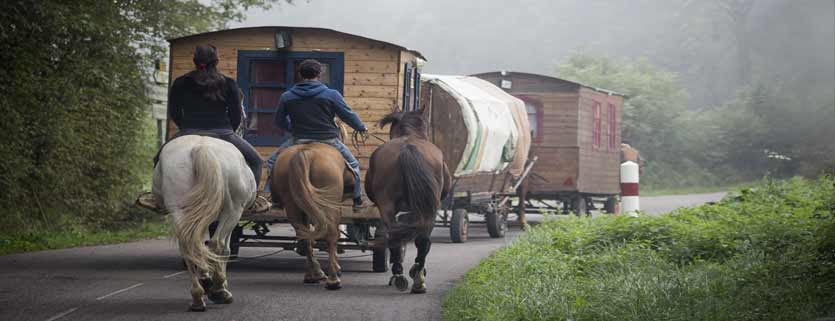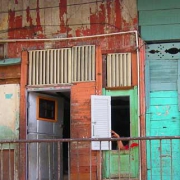A bigger planet – Fossil free transport
/0 Comments/in Long Articles/by Rudolf HuberIn 1873, Jules Verne published his most acclaimed novel. “Around the World in 80 Days”. An English gentleman, Phileas Fogg, and his valet Passepartout attempt to circumnavigate the globe in 80 days. The entire journey results from a wager that Fogg set with his friends in the Reform Club.
Not only was it deemed to be almost impossible to even consider such a challenge at the time. The whole thing was also a costly endeavor. Fogg was a wealthy man. This allowed him to contemplate such a thing.
The planet was unfathomably big. It was so big, most of it was still a mystery to the lion’s share of people. There were ample white spots on all maps. Besides, few had seen anything beyond the country they were born in. Let alone leave the continent or travel for enjoyment.
Travel at the time was arduous, dangerous, and only for the ultra-wealthy. Or for traders that made their living on the waves. Many did not return and those who did were deeply changed personalities. Faraway countries remained the mystery they had always been.
About 25 years after those events, my very own grandfather was born. The issues connected to traveling had not changed a lot from what they were at Phileas Fogg’s time by then. But in my grandfather’s lifetime, the globe began to shrink. And it shrank ever faster.
When he was born in 1899, circumnavigating the globe in 80 days would still have been challenging and very expensive. When he died more than 80 years later, anyone could have circumnavigated the globe with ease. He could have done that for a reasonable amount of money in less than 2 days if layovers are short.
That’s the magic of fossil fuels. For the first time in human history, traveling opened up to the average masses.
The planet has shrunk. I have seen a large number of countries on all continents. I am very well-traveled and have friends on all parts of Earth. Friends that I met with, not internet acquaintances. 100 years ago that would have been an extreme rarity. Today I meet plenty that have gone farther than I have.
Modern travel went along with an extreme increase in living standards. Personal freedom is also at an all-time high.
OK, 130 years ago there was no human flight. Today airplanes are ubiquitous. But even seaborne travel has transformed the planet. Modern ships ply the oceans at speeds between 12 and 18 knots. Those speeds were matched by the latest Clipper ships of the 19th century. But those were at the mercy of the weather and the winds.
Today’s ships can guarantee those speeds in any weather making supply chains reliable. 2000 years ago trade ships in the Mediterranean often took one month to get from Egypt to Italy. They were at the mercy of currents and the winds. Not good for perishable goods.
Only with the advent of coal and finally, oil as a fuel, shipping became reliable and the globe shrank. Air travel made this planet a small world. Breakfast in London, dinner in Tokyo. Weekend city trips. Overnight delivery of goods and services. Cheap stuff from all over the globe. Living standards that not even the very wealthy could imagine. They are at the fingertips of anyone in developed countries and many in developing ones. All courtesy of fossil fuels.
Now take it all away.
All air travel would come to a screeching halt. There are schemes for electric airplanes but they are no more than laboratory rats. Their ranges are limited and they are expensive.
But shipping and land travel would take horrible a hit as well.
The one big problem hitting electric vehicles is the battery. It’s slow to charge and does not hold a lot of energy. Yes, I hear you. Today’s Lithium-Ion batteries are a far cry from the old Nickel-Iron bricks. Yet, they are no match to the energy density and convenience of hydrocarbon fuels.
A small volume of liquid that takes minutes to fill into a tank. And it will propel any normal passenger vehicle for hundreds of kilometers. Trucks exceed 1000 km with one fill with ease.
In long-distance travel, commercial vessels plying the waves are absolute endurance monsters.
They go around half the world with one fill. They need to be able to do that. No battery can cope with that. Various concepts like wind power for ships is a drop of water in a hot frying pan. Wind is not reliable and it’s way too weak as an energy source.
Let’s be honest – the life anyone alive today knows and has ever known would come to a halt without fossil fuels. Land transport would become a lot more expensive. And I am not talking about 20% here. It’s more like 4-6 times as much. Personal vehicles would be limited to a few wealthy people. The bulk of the population would have to rely on mass transport. And that will be plagued by the frequent blackouts as we have seen last week.
Small personal vehicles such as e-rollers will be used. Their utility beyond a local geographical framework will be limited. Land transport will become a lot more expensive. Electric trucks won’t be able to do what hydrocarbon-fuelled trucks do today. Even construction machinery will be harder to operate and become more expensive. It will be a lot harder to build and maintain anything. And the goods you buy will rise in price.
Many will say that rail will become more important and it will. But let’s not forget that there will be frequent blackouts. This means that reliability will be out of the window. Plus, rails don’t go everywhere. More flung-out communities will be as isolated as they were 100 years ago again.
If you go about 80 km northwest out of Vienna, you reach a region that’s called the Woodquarters. The name comes from the fact that this region used to be one of the most thickly wooded regions of Austria.
It was home to outlaws and isolated communities. Going there was dangerous and took a toll on travelers. Today, a federal highway goes out there. It allows you to go in one hour.
Only about 150 years ago it took you 2 weeks and you might not have come back from it.
Owners of electric vehicles might think that they are safe from those disruptions.
Think again.
If you have something that the masses don’t have, how safe are you going to be? Besides, electricity will be rationed. You won’t be able to charge your e-vehicle most of the time anyhow.
Shipping will be reduced as wind plus batteries would make for very expensive, slow, and hard-to-use ships. Battery vessels would have to harbor hop around the world to get their recharges. Those recharges would take quite a while every time. And this will lengthen every trip by a factor of multiples.
Also, lower transport capacity per ship will make those ships even more expensive to run. Kiss international trade goodbye. Except for the most expensive items that justify such costs. And by expensive I don’t mean iPhones.
Air travel will be all but gone. Expect some airships and naval passenger liners to make a comeback. Going from Europe to the US is going to take weeks again. Have you seen the movie Titanic? Remember those strictly separated class decks? They will be back with a vengeance with even more cattle-like conditions for normal people.
National economies and cities that depend on trade would sink into a deep economic recession. Expect ghost cities as many people will move to the countryside. Extreme supply disruptions will lead to slum-like conditions and starvation in the cities.
The world is going to revert to a huge Earth. It will be unfathomably hard to travel with most humans living in very small communities. And when travel is hard and expensive, distances must be kept minimal.
Welcome back to the small community, subsistence society the Middle Ages were famous for.













Leave a Reply
Want to join the discussion?Feel free to contribute!